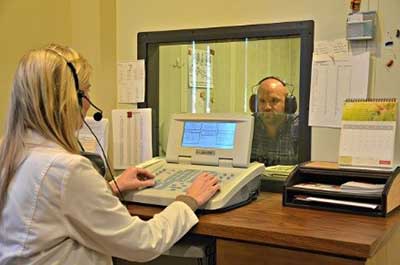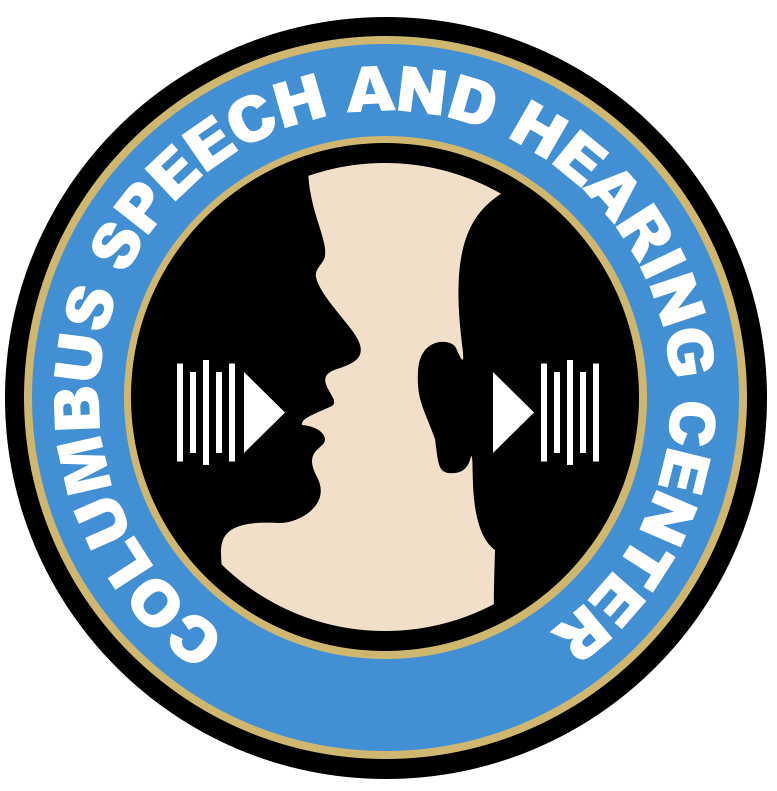 Comprehensive Hearing Evaluation
Comprehensive Hearing Evaluation
It is estimated that approximately one-third of Americans between 65 and 75 experience some level of hearing loss. It is common to gradually lose your hearing as you age. This is referred to as presbycusis. The most common factors that contribute to hearing loss are genetics and exposure to constant loud noises. Other factors, such as earwax buildup, may prevent your ears from functioning as well as they should.
If you are experiencing one or more of the following symptoms, please see a member of our team for a comprehensive hearing evaluation to confirm whether or not you have hearing loss.
- The quality of speech/sounds is muffled.
- Often asking others to repeat themselves and speak slower and louder.
- Difficulty understanding words, especially when in a crowd or a noisy environment.
- The tendency to withdraw from conversations.
- Constant need to increase the volume on the television.
- Often avoid certain social settings.
While there is no "cure" for hearing loss, there are steps a person can take to improve their hearing. Hearing aids can boost your self-confidence, enhance your relationships with others and improve your overall outlook on life. Schedule an appointment to see what options are available to improve your hearing.
Universal Newborn Hearing & Screening
The most common birth defect, hearing loss affects approximately one in every 1,000 newborns. In the state of Georgia, the UNHSI requires that all babies be screened for hearing loss before they reach the age of 1 month old. This test is usually completed before the infant leaves the birthing facility. If the infant does not pass the screening, he or she will be referred for a re-screening. Infants who do not pass the second testing will then be referred to an audiologist.
Auditory Brainstem Response Testing
To evaluate the inner ear (cochlea) and the pathways to the brain used for hearing, our audiologists administer Auditory Brainstem Response (ABR) Tests. Electrodes will be stuck to the patient's head and will record brain wave activity while the patient hears certain sounds. The test is performed while the patient is lying down, resting or asleep. This test can be performed on both children and adults.
Ototoxicity Monitoring
Medications meant to treat certain diseases, such as cancer or other infections, can inadvertently damage the inner ear and the patient's hearing. Drug-induced hearing loss is known as ototoxicity. If you take any medications that are known to cause hearing loss, or other side effects, such as dizziness or tinnitus, please schedule a hearing evaluation with our office. If you are experiencing hearing loss due to medication, your physician will be notified so that your medication can be changed accordingly. Our testing can detect minor hair cell damage before the patient is aware of any changes in hearing.
Tinnitus Retraining
Approximately one out of five Americans suffers from tinnitus. Tinnitus is the sensation of sounds, such as ringing, clicking, roaring or banging, in the inner ear. Tinnitus can be very frustrating, but it can also be so severe that it's a disabling problem. Many people do not know that tinnitus is merely a symptom of an underlying issue in the patient's hearing system, not a disease itself.
Patients with tinnitus need to be evaluated by our audiologists to determine if there are any underlying causes for the sounds, as some cases could be the result of another potentially serious condition.
